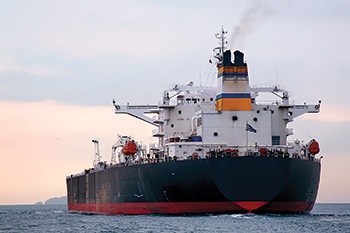
 Europe controls the world’s largest and most innovative fleet of ships
Europe controls the world’s largest and most innovative fleet of ships
The EU shipping industry supports employment for an estimated 2.2 million people both on board vessels and ashore in the wider maritime cluster and directly employs 615,000 people, including 501,000 jobs based at sea, says a study
The European shipping industry supports employment of 2.2 million people and overall contributes €147 billion ($159 billion) to EU economy, according to the results of a Oxford Economics study released by the European Community Shipowners’ Associations (ECSA).
The study, titled 'The economic value of the EU shipping industry', looked to estimate the economic impact of the shipping industry across three channels: the direct impact of the shipping industry itself; the indirect impact of shipping firms’ expenditures across the EU supply chain; and the impact of spending by employees in the shipping industry and supply chain.
According to the study, the overall contribution – including all the three channels – of the European shipping industry to the EU’s GDP in 2013 is estimated to have been €147 billion, including an estimated €56 billion of which that directly contributed to EU GDP. The study notes that for every €1 million the European shipping industry contributes to GDP itself, it creates another €1.6 million elsewhere in the European economy.
In terms of employment, the EU shipping industry directly employs 615,000 people, including 501,000 jobs based at sea, according to the study. The industry directly employs more workers than the aviation sector, while, between 2004 and 2013, direct employment grew by 25 per cent, the ECSA says in a statement announcing the results of the study.
Moreover, EU shipping is far more productive in terms of GDP generated per worker than the EU average. Each worker is estimated to have generated €85,000 of GDP, significantly above the EU average of €53,000, according to the study.
Overall, the study says that the industry supports employment for an estimated 2.2 million people both on board vessels and ashore in the wider maritime cluster.
The study also shows that ultimate ownership or control of 40 per cent of the world’s gross tonnage lies in an EU countries, and growing strongly. Between the start of 2005 and the start of 2014, the EU-controlled fleet expanded by more than 74 per cent in tonnage, and by 72 per cent in terms of deadweight tonnage, the study says.
'Europe controls the world’s largest and most innovative fleet of ships' remarks Patrick Verhoeven, ECSA secretary general. 'This very important fact is often overlooked despite the fact that it plays a key role in the economic impact of our industry on the European economy,' he adds.
The study and its findings were presented by the ECSA during a press conference kicking off European Shipping Week. The theme of this year’s conference was: 'Charting the route of EU shipping policy: An input to the EU maritime strategy review.'












































































